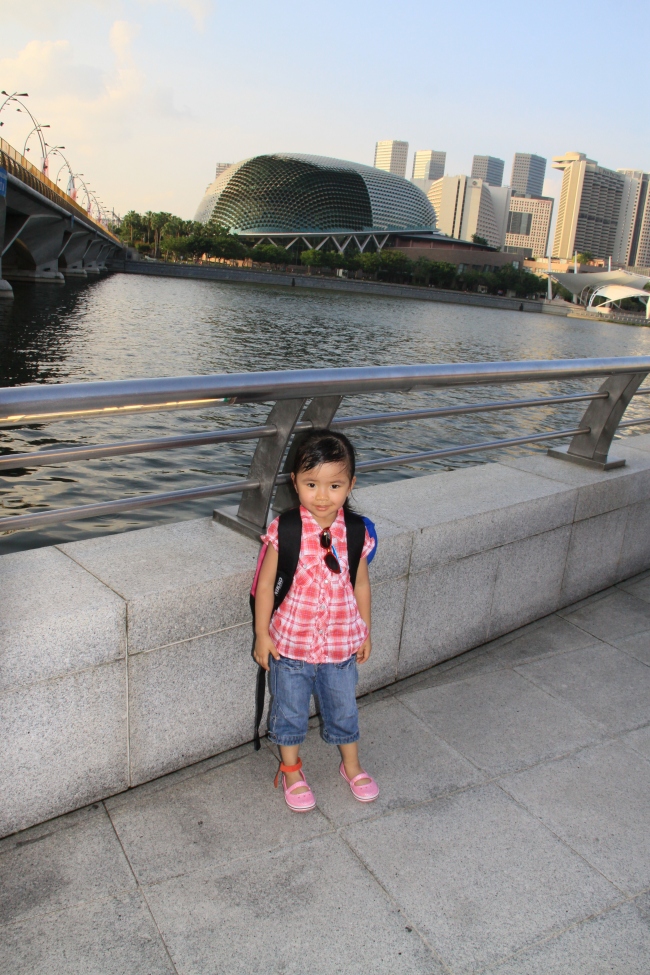假如你想在口語普通話裡,說好輕柔聲調的話,你必須要分辨清楚,輕柔聲調配詞的類別。
輕聲調可分為兩個類別:
If you want to spoken Mandarin, saying good gentle tone, you have to distinguish, gentle tones category. Gentle tones can be divided into two categories:
(1)詞彙輕柔聲調:
屬於這個類別的輕柔聲調,佔輕柔聲調的多數,對初學者來說,需要逐一記憶,學一個得一個,別無其他辦法。
(1) Vocabulary gentle tone:
Belong to this category gentle tone, accounted for most gentle tone, for beginners, requires each memory, be sure to learn one-by-one, there is no other way.
普通話常用必讀的雙音節輕柔聲調詞,共有2 0 0多個,要全部熟悉,並不是一件容易的事,只有下些功夫來記住,沒有甚麼捷徑可走。
Mandarin popular must-read two-syllable word gentle tone, there are over 200 more than.
If you want all be familiar, it is not an easy task, only by striving to remember each one, there are no shortcuts.
不過,請你注意下面一些規則,這會有助於你掌握那些才是輕柔聲調的詞語。
However, please note that some of the rules below, this will help you to master which words are the gentle tones.
1 . 雙音節單詞的第二音節,常為輕柔聲調詞。例如:
The second syllable of two-syllable words, these words often read as gentle tone. For example:
喇叭【lǎ ba】
speaker 蘿蔔【luó bo】
radish
糊塗【hú tu】
muddle 玻璃【bō li】
glass
駱駝【luò tuo】
camel 模糊【mó hu】
fuzzy
螞蚱【mà zha】
grasshopper
2 .重壘音韻名詞的第二音節(多是親屬稱謂)。例如:
Overlapping words phonological the second syllable nouns. (Mostly kinship). For example:
妹妹【mèi mei】
a younger sister 舅舅【jiù jiiu】
an uncle who is a brother of one’s mother
奶奶【nǎi nai】
one’s (paternal) grandmother 爸爸【bà ba】
father
媽媽【【mā ma】
mother 乖乖【guāi guai】
well-behaved
寶寶【bǎo bao】
baby (a term of endearment)
太太【tài tai】
(form of address) Mrs.
3 .反義複合詞的第二個音節(詞義不作為聯合結構)。例如:
Antisense second syllable compound words.(Meaning not as a joint structure)
For example:
反正【fǎn zheng】
one way or another 買賣【mǎi mai】
commerce
動靜【dòng jing】
movement 褒貶【bāo bian】
to criticize
多少【duō shao】
more or less
東西【dōng xi】
east and west
4 .聯合複合式詞語,因口語習慣而讀作輕柔聲調。例如:
Joint compound words, read as a result of oral habits gentle tones.
For example:
眼睛【yǎn jing】
an eye 胳膊【gē bo】
arm
頭髮【tóu fa】
human hair on top of the head 身份【shēn fen】
Identity
結實【jiē shi】
not easily breakable
休息【xiū xi】
to rest
5 .部分連接詞或介系詞後的一個音節。例如:
A syllable after some conjunctions or prepositions. For example:
除了【chú le】
in addition to 還是【hái shi】
nevertheless
要是【yào shi】
in case 要麼【yào me】
either…or…
自從【zì cong】
ever since 由於【yóu yu】
owing to
關於【guān yu】
with regard to 對於【duì yu】
as regards
向着【xiàng zhe】
toward 朝着【cháo zhe】
toward
按照【àn zhao】
according to 通過【tōng guo】
to come through
(2)語法輕柔聲調:
(2) Syntax gentle tone:
屬於這個類別的輕柔聲調為數不太多;主要分佈於結構助語詞、動態助語詞、語氣助語詞和名詞的後綴字。
Belong to this category gentle tone, an amount not too much; mainly in structural aid words, dynamic help words, emphatic words and the noun suffix terms.
1 .重疊音韻動詞,中間夾着「一」字或「不」字,一般都要讀柔聲調。例如:
Overlapping phonological verb, sandwiched between “one" word or word “no", the general must read softly tone. For example:
去不去【qù bu qù】
go or not 看不看【kàn bu kàn】
see or not to see
做不做【zuò bu zuò】
do or do not 說不說【shuō bu shuō】
say or do not say
差不多【chà bu duō】
almost 行不行【xíng bu xíng】
can or can not
怪不得【guài bu dé】
no wonder 能不能【néng bu néng】
can or can not be
說一說【shuō yi shuō】
say something 抹一抹【mǒ yi mǒ】
wipe
走一走【zǒu yi zǒu】
take a trip 有一天【yǒu yi tiān】
one day
想一想【xiǎng yi xiǎng】
think about 烤一烤【kǎo yi kǎo】
roasted
做一做【zuò yi zuò】
try to do something
談一談【tán yi tán】
talk
2 .部份名詞、代名詞和副詞的尾語後綴字。例如:
Some nouns, pronouns and adverbs suffix character. For example:
你們【nǐ men】
You 我們【wǒ men】
We
桌子【zhuō zi】
a table 人們【rén men】
people
石頭【shí tou】
stone 孩子【hái zi】
a child
甚麼【shén me】
What 村子【cūn zi】
a village
敵人【dí ren】
an enemy 木頭【mù tou】
wood
後人【hòu ren】
later generations 上頭【shàng tou】
Immediate boss
客人【kè ren】
a guest 那麼【nà me】
in that case
怎麼【zěn me】
why
3 .名詞後的一些方向詞,常常會讀輕柔聲調:
After some direction noun often read gentle tone:
牆上【qiáng shang】
wall surface 底下【dǐ xia】
bottom below
屋子裏【wū zi li】
inside the house 手頭上【shǒu tou shàng】
on hand
前面【qián mian】
the front side 後頭【hòu tou】
in the behind
注意:下列名詞後的方向詞:中、前、外、左、右、東、南、西、北。
要記住絕對不能讀輕柔聲。例如:手中、窗前、屋外等。這是必須要記清楚。
NOTE: The following nouns direction after the word: in front, outside, left, right, east, south, west, north.
Remember that absolutely can not read the gentle sound. For example: inside the hands of, in front of the window, outside the house and so on. This is necessary to remember clearly.
4 .動詞後面的結果補語。例如:
The results complement verb. For example:
打開【dǎ kai】
to unfold 站住【zhàn zhu】
to halt
爛掉【làn diao】
rotted away
關上【guān shang】
closed
5 .重疊音韻,單音動詞後的聲調。例如:
Overlapping phonology, monophonic tones after the verb. For example:
坐坐【zuò zuo】
sit down 瞧瞧【qiáo qiao】
take a look
試試【shì shi】
try 嚐嚐【cháng chang】
to taste
6 .動態助語詞,例如,「讀着、走了、過看」,這些字詞常常讀作輕柔聲調。例如:
Dynamic help words, such as “reading, walking, after watching", these words are often read as a gentle tone. For example:
看過【kàn guo】
already seen it 去過【qù guo】
has been to
吃着【chī zhe】
eating 讀着【dú zhe】
reading
走了【zǒu le】
has left
輸了【shū le】
to lose it
7 .結構助語詞,例如,「紅的、做得好、認真地」必須讀作輕柔聲調。例如:
Structural aid words, such as “red, well done, seriously," must be read as a gentle tone. For example:
紅的花【hóng de huā】
red flower 他的車【tā de chē】
his car
勇敢地【yǒng gǎn de】
bravely 認真地【rèn zhēn de】
seriously
做得好【zuò de hǎo】
well done
跑得快【pǎo de kuài】
run fast
8 .語氣助語詞,例如,「真的、過去了、知道嗎、算了吧、等你呢、很好啊、快些啦、真的嘛」必須讀作輕柔聲調。例如:
Help tone words, such as “Really, gone, you know, forget it, waiting for you, well, ah, faster, really" must be read as a gentle tone. For example:
發生火災就是這家工廠嗎?
【fā shēng huǒ zāi jiù shì zhè jiā gōng chǎng ma?】
Is this factory on fire?
事實上,我真是不知道啊!
【shì shí shàng,wǒ zhēn shì bù zhī dào a!】
In fact, I really do not know ah!
這裡不安全,快走吧!
【zhè lǐ bù ān quán,kuài zǒu ba!】
Not safe here and get going!
我在家正等着你呢!
【wǒ zài jiā zhèng děng zhe nǐ ne!】
I am at home awaits you!
本來就是這樣的嘛!
【běn lái jiù shì zhè yàng de ma!】
Has always been so!
事情都過去了,不要再想了。
【shì qíng dōu guò qù le,bú yào zài xiǎng le。】
Things are gone, do not think of it.
9 .表示趨向的助動詞後,例如,「來過、回去、上來、下去、過來」,必須讀作輕柔聲調。例如:
After auxiliary trends indicate, for example, “Come over, back, up, down, come," must be read as a gentle tone. For example:
過來【guò lai】
come 出去【chū qu】
go out
站起來【zhàn qi lái】
stand up 掉下去【diào xia qù】
fall down
拿過來【ná guo lái】
to take over
1 0 .「我、你、他、她、它」所有這些人稱代名詞,作為「主語」使用,也會讀輕柔聲調。例如:
“I, you, he, she, it," all of these personal pronouns as “subject" to use, will be read gentle tones. For example:
你找我?【nǐ zhǎo wǒ?】
Are you looking for me?
請他來這裡。【qǐng tā lái zhè lǐ。】
Ask him to come here.
給你個任務。【gěi nǐ gè rèn wù。】
Give you a task.
我來吧!【wǒ lái ba!】
I do it!
她行嗎?【tā xíng ma?】
She can do it?
這裡有兩個練習,筆者想請你來試做。
Here are two exercises the author would like to ask you to try to do.
下列配詞,哪些配詞是詞彙輕柔聲調?哪些配詞是語法輕柔聲調?哪些不能讀作輕聲?(答案在練習底部)。
With the following words, which words are words with gentle tones? Which word is grammar with gentle tones? What words can not be read as softly? (The answer is at the bottom of the exercise).
學生【xué shēng】
student 醫生【yī shēng】
a doctor
朋友【péng yǒu】
a friend 孔子【kǒng zǐ】
Confucius
茄子【qié zi】
an eggplant 原子【yuán zǐ】
an atom
房子【fáng zi】
a building 態度【tài du】
an attitude
高度【gāo dù】
altitude 門前【mén qián】
in front of the gate
房後【fáng hòu】
back of the room 江河【jiāng hé】
rivers
海洋【hǎi yáng】
ocean 唸叨【niàn dāo】
talk over
上面【shàng miàn】
above 地面【dì miàn】
ground
人們【rén men】
people 桌椅【zhuō yǐ】
tables and chairs
前後【qián hòu】
front and rear 好壞【hǎo huài】
good or bad
上來【shàng lái】
up 走一走【zǒu yì zǒu】
walk
睡着了【shuì zháo le】
asleep 懂不懂【dǒng bù dǒng】
understand it or not
吃了嗎【chī le ma】
have eaten 快去吧【kuài qù ba】
go faster
(二)你能標示出下面兒歌中的輕柔聲調嗎?(答案在練習底部)。
Can you mark out the following songs in gentle tones?
(The answer is at the bottom of the exercise).
洗洗臉兒漱漱口,
xǐ xǐ liǎn ér shù shù kǒu,
Gargle and wash one’s face,
剪剪指甲梳梳頭,
jiǎn jiǎn zhǐ jiǎ shū shū tóu,
Brushing hair and cut nails,
衣服整齊見朋友,
yī fu zhěng qí jiàn péng yǒu,
Wear neat clothes to see friends,
手拉手兒走一走。
shǒu lā shǒu ér zǒu yì zǒu。
Walk hand in hand.
複習(2 2):Review(2 2): (五)
普通話的字詞,每一個都應該會有音調,但是,有些組合字詞的音調讀起時,音調會又輕又短,這就是輕聲調詞語。
Mandarin words, each one should have a tone, but the tone of some combination of words read from time to time, the tone will be light and short, this is the light tones terms.
1丫頭(yā tou)
abigail 2鴨子(yā zi)
a duck
3啞巴(yǎ bā)ba
a deaf-mute person 4胭脂(yān zhi)
blusher
5眼睛(yǎn jing)
an eye 6燕子(yàn zi)
a swallow
7養活(yǎng huo)
to support 8樣子(yàng zi)
an appearance
9吆喝(yāo he)
to cry out 1 0鑰匙(yào shi)
a key
1 1椰子(yē zi)
a coconut 1 2葉子(yè zi)
leafage
1 3一輩子(yí bèi zi)
throughout one’s life 1 4衣服(yī fu)
clothing
1 5椅子(yǐ zi)
a chair 1 6意思(yì si)
meaning
1 7影子(yǐng zi)
a shadow 1 8應酬(yìng chou)
to engage in social activities
1 9冤枉(yuān wang)
to treat unjustly 2 0月餅(yuè bing)
a pastry with mostly sweet fillings made for the Moon Festival
2 1雲彩(yún cai)
cloud 2 2運氣(yùn qi)
a fortune
2 3咱們(zán men)
(persons spoken to)"we"; “us" 2 4早上(zǎo shang)
morning
2 5丈夫(zhàng fu)
a husband 2 6帳蓬(zhàng peng)
tent
2 7丈人(zhàng ren)
wife’s father 2 8招呼(zhāo hu)
to say hello to
2 9招牌(zhāo pai)
a shop sign 3 0這個(zhè ge)
this one
3 1這麼(zhè me)
such 3 2枕頭(zhěn tou)
a pillow
3 3芝麻(zhī ma)
sesame 3 4知識(zhī shi)
knowledge
3 5指甲(zhǐ jia)
a fingernail 3 6指頭(zhǐ tou)
fingers
3 7種子(zhǒng zi)
a seed 3 8珠子(zhū zi)
a bead
3 9竹子(zhú zi)
bamboo 4 0主意(zhǔ yi)
an idea
4 1轉悠(zhuàn you)
cruise 4 2壯實(zhuàng shi)
sturdy
4 3狀元(zhuàng yuan)
Number One Scholar (in the imperial examination) 4 4桌子(zhuō zi)
a desk
4 5自在(zì zai)
unrestrained 4 6嘴巴(zuǐ ba)
a mouth
4 7琢磨(zhuó mo)
to turn something over in one’s mind 4 8柵欄(zhà lan)
a (rail) fence
4 9怎麼(zěn me)
how 5 0祖宗(zǔ zong)
ancestors
下列配詞,哪些配詞是詞彙輕柔聲調?哪些配詞是語法輕柔聲調?哪些不能讀作輕聲?(答案)。
With the following words, which words are words with gentle tones? Which word is grammar with gentle tones? What words can not be read as softly?
(Answer)
1【詞彙輕聲】 2【非輕聲】 3【語法輕聲】
1 Glossary softly 2 Non softly 3 Syntax softly
學生【xué shēng】詞彙輕聲(1) 醫生【yī shēng】非輕聲(2)
朋友【péng yǒu】詞彙輕聲(1) 孔子【kǒng zǐ】非輕聲(2)
茄子【qié zi】詞彙輕聲(1) 原子【yuán zǐ】非輕聲(2)
房子【fáng zi】詞彙輕聲(1) 態度【tài du】詞彙輕聲(1)
高度【gāo dù】非輕聲(2) 門前【mén qián】非輕聲(2)
房後【fáng hòu】非輕聲(2) 江河【jiāng hé】非輕聲(2)
海洋【hǎi yáng】非輕聲(2) 唸叨【niàn dāo】詞彙輕聲(1)
上面【shàng miàn】語法輕聲(3) 地面【dì miàn】非輕聲(2)
人們【rén men】語法輕聲(3) 桌椅【zhuō yǐ】非輕聲(2)
前後【qián hòu】非輕聲(2) 好壞【hǎo huài】非輕聲(2)
上來【shàng lái】語法輕聲(3) 走一走【zǒu yì zǒu】語法輕聲(3)
睡着了【shuì zháo le】語法輕聲(3) 懂不懂【dǒng bù dǒng】語法輕聲(3)
吃了嗎【chī le ma】語法輕聲(3) 快去吧【kuài qù ba】語法輕聲(3)
(二)你能標示出下面兒歌中的輕柔聲調嗎?(答案)。
Can you mark out the following songs in gentle tones?
( Answer).
洗洗臉兒漱漱口,
xǐ xǐ liǎn ér shù shù kǒu, 【洗洗】【漱漱】重疊音韻
剪剪指甲梳梳頭,
jiǎn jiǎn zhǐ jiǎ shū shū tóu, 【剪剪】【梳梳】重疊音韻
【指甲】詞彙輕聲
衣服整齊見朋友,
yī fu zhěng qí jiàn péng yǒu, 【衣服】詞彙輕聲【朋友】詞彙輕聲
手拉手兒走一走。
shǒu lā shǒu ér zǒu yì zǒu。 【一】語法輕聲
親愛的同學、朋友們,「學無前後,達者為先」,讓我們為這一句富於哲理的說話,亙相共同勉勵!
Dear students, friends, “Learning without front and rear, reached by first". Let us handle this one ancient philosophy statement, of mutual encouragement!
我的「漢語拼音」教學影片原本計劃將在2013年7月下旬在You Tube 出現,但是,由於教學課本尚在編寫階段,我想,有可能會延期到2013年8月下旬,到時請前往:
My “Pinyin" instructional videos originally planned to end in July 2013 appeared in You Tube, but because of school textbooks still in stages of preparation, I think, there may be postponed until the end of August 2013, when go :
WWW.YouTube.Com/user/mastertsang1





